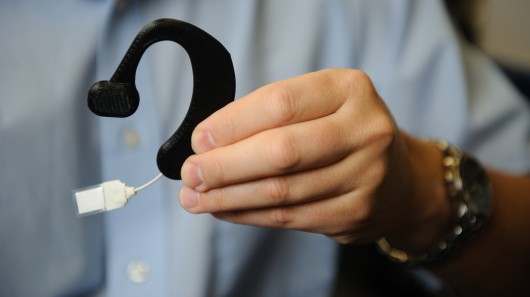Do You Know What You Are Really Eating?
The idea of wearable technology has greatly caught on by the masses – especially for those who are health-conscious. Finally, we are able to keep track of our health with the help of innovative technology and devices.
Accurately monitoring diet has been the goal of many healthy-lifestyle apps, web apps, and optimistic devices that count calorie output throughout the day. The problem with these lies in the simple fact that they rely on users to self-report how much they eat. It is no question that this method can lead to unreliable data, as many people forget to report some meals or poorly estimate how much they’re actually eating. Some people even rig their reports on purpose.
Edward Sazonoc, professor of electrical and computer engineering at the University of Alabama said in a statement, “Currently, people can estimate diet and nutrient intake, but the primary method is self-reporting.” Sazonoc is working on a brand new device that focuses on solving this self-reporting issue.
The device is called the Automatic Ingestion Monitor (AIM).
The device is worn around the ear like a Bluetooth earpiece and has a camera that takes photos of what you are eating or drinking. It also contains a motion sensor that sticks to your jaw that records movement for every time you chew or swallow.
The tracker is programmed to know the difference between talking, eating, and swallowing. The total mass and energy content of the food is calculated based on the pictures of the meals and how many times the person chewed during a meal.
Sazonov says, “The number of chews is proportional to ingested mass and energy intake.”
The tricky part is that once the photo has been taken, the image is then analyzed by a nutritionist who identifies the food as well as actual portion size. Sazonov hopes to make this process automated in the future with a computer using 3D imaging and analysis to calculate the portion size.
Sazonov’s goal is to replace the unreliable self-reported data that many people currently rely on. He hopes his new diet tracking device leads to the development of new weight-loss aids and helps researches gain new information about the habit of overeating.
New methods like the AIM show a positive step forward in diet and eating habit analysis, which in turn could help many people regain control over their health. There are still many issues to work out, but eventually AIM will likely be the first marketed medical device to not let you cheat and help make sure you are getting the correct amount of nutrients. AIM is the ideal device for people who want to take control and track their diet with precision and accuracy.
